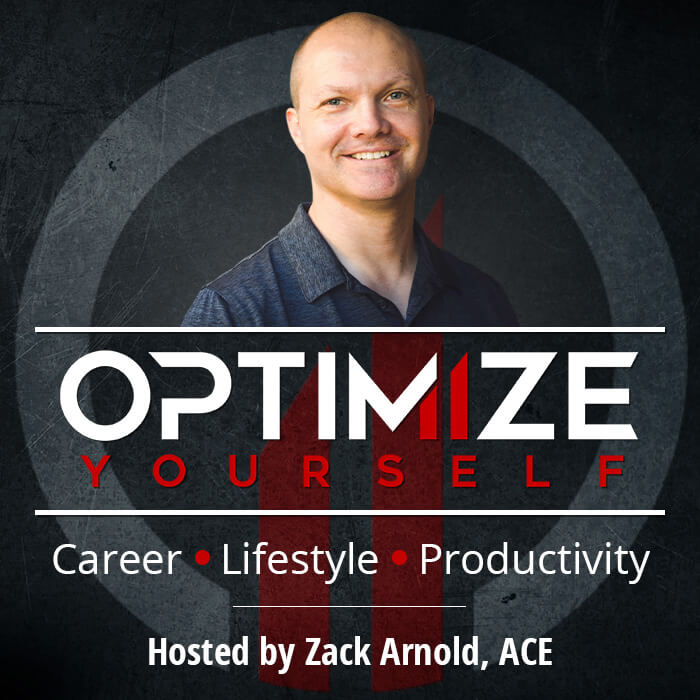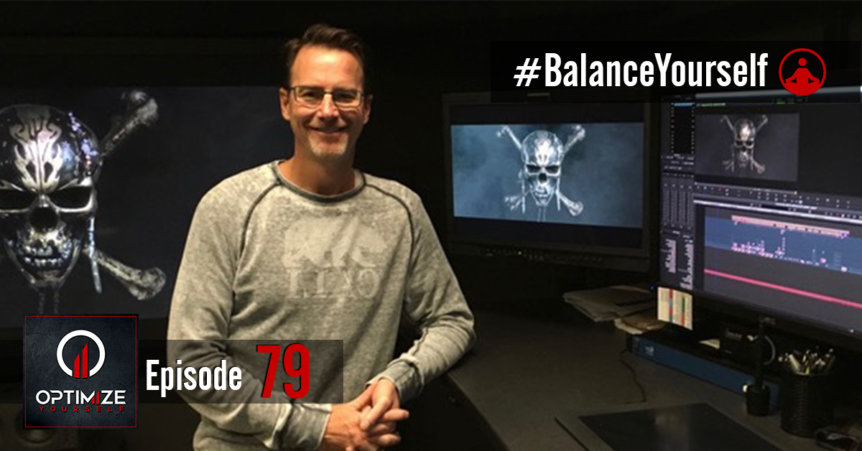

Zack Arnold
Ep79: Balancing Health, Happiness, & Hollywood (and the Consequences When You Don't) | with Roger Barton
Roger Barton has edited and worked on some of the most iconic films of a generation such as Armageddon, Pearl Harbor, Titanic, World War Z, Terminator: Genesis, and the last five ‘Transformers’ films (this is just the ‘short’ list). He has lived many long days in the cutting room with directors such as James Cameron, Michael Bay, George Lucas, Joe Carnahan, and more.
And that’s what this episode is all about today: “Living” in the cutting room and what that can do to your mental health, your physical health, your relationships, and your well-being. Roger is no stranger to burnout on the job, and in this interview he was extremely candid, open, and honest about how his exploding career as a young up-and-coming feature editor cost him dearly in his personal life as well as with his health. If you’re curious about what it’s really like working with the biggest directors on the biggest film imaginable, Roger gives you a peek inside his cutting room.
Because of Roger’s love for both his craft but also his family, he spent years wondering if there was a better way to collaborate with directors & producers whereby he wouldn’t have to disappear for months at a time and sacrifice time with his family. And luckily for every editor around the world who has desperately wished and prayed for a technical solution that would allow you to work from home while not inhibiting the collaborative process, Roger has not only found the solution…he’s helping to build it and make it better.
And that solution is Evercast.
Want to Hear More Episodes Like This One?
» Click here to subscribe and never miss another episode
Here’s What You’ll Learn:
- How Roger’s initial exposure to the editing process totally re-routed his life
- The common misconception that bigger movies are always more demanding
- How Roger made it from That Darn Cat to Titanic
- The lifestyle choices and sacrifices that come with working on the biggest movies ever made
- What it’s like to work with Michael Bay
- The importance of having a director that understands the danger of burnout in post-production
- The dark personal toll that climbing the career ladder had on Roger’s family
- Striving for work/life presence rather than balance
Useful Resources Mentioned:
Ultimate Guide to Optimizing Your Creativity (and Avoiding Burnout)
Our Generous Sponsors:
This episode is made possible for you by Ergodriven, the makers of the Topo Mat, my #1 recommendation for anyone who stands at their workstation. The Topo is super comfortable, an awesome conversation starter, and it’s also scientifically proven to help you move more throughout the day which helps reduce discomfort and also increase your focus and productivity. Click here to learn more and get your Topo Mat.
Guest Bio:

Facebook|LinkedIn
Roger Barton began working in editorial on documentaries and made-for-TV movies including the Emmy award-winning “Indictment: The McMartin Trial.” He soon made the transition to motion pictures and in 1997 was an Associate Editor on the decade’s biggest blockbuster, “Titanic.”
He quickly moved up the ladder, honing his skills at Jerry Bruckheimer Films on “Armageddon” and “Gone in 60 Seconds.” Since then, Barton has worked with Michael Bay on “Pearl Harbor,” “Bad Boys 2,” the Platinum Dunes release, “Amityville Horror,” “The Island,” and the last five “Transformers” films.
During his career, Roger has cut for Hollywood’s leading filmmakers such as George Lucas on “Star Wars: Episode III”, the Wachowski Brothers’ “Speed Racer”, Jim Sheridan’s “Get Rich or Die Tryin'” and two films for Director Joe Carnahan, “The Grey” and “The A-Team.”
Beginning in 2013, Roger edited three films for Skydance Entertainment, “G.I. Joe: Retaliation,” “World War Z,” and “Terminator: Genesis.” In 2016 Roger returned to with Jerry Bruckheimer on “Pirates of the Caribbean, Dead Men Tell No Tales,” after which he joined the team cutting “Transformers, The Last Knight” which is his ninth collaboration with Michael Bay.
In the summer of 2017, Roger began editing “Godzilla: King of Monsters” for Legendary Pictures but left when he became Co-Founder of Evercast — a live streaming creative collaboration platform. As more and more productions shoot out of town, Evercast is becoming widely adopted by Hollywood because keeping filmmakers connected maintains creative momentum, saves time, money and removes the need to travel post-production crews around the world for months at a time. While Roger was pitching Evercast to the Hollywood Studios, he also helped John Krasinski turn his 17 million dollar genre thriller “A Quiet Place” into a 334 million summer blockbuster.
With Evercast gaining momentum of its own, Roger has returned to his passion of editing and is currently cutting “Six-Underground”, the most expensive Netflix project to date being directed by Michael Bay and starring Ryan Reynolds.
Show Credits:
This episode was edited by Curtis Fritsch, and the show notes were prepared and published by Elyse Rintelman. The original music in the opening and closing of the show is courtesy of Joe Trapanese (who is quite possibly one of the most talented composers on the face of the planet).
Note: I believe in 100% transparency, so please note that I receive a small commission if you purchase products from some of the links on this page (at no additional cost to you). Your support is what helps keep this program alive. If you have any questions, please don’t hesitate to contact me.


